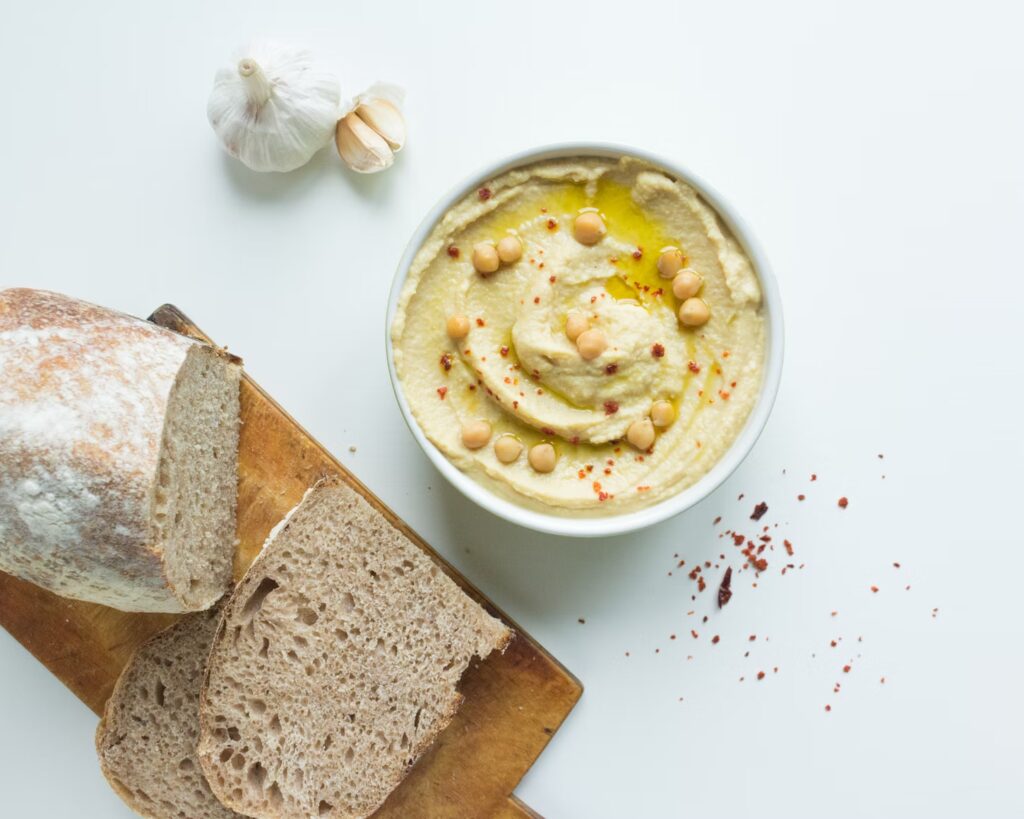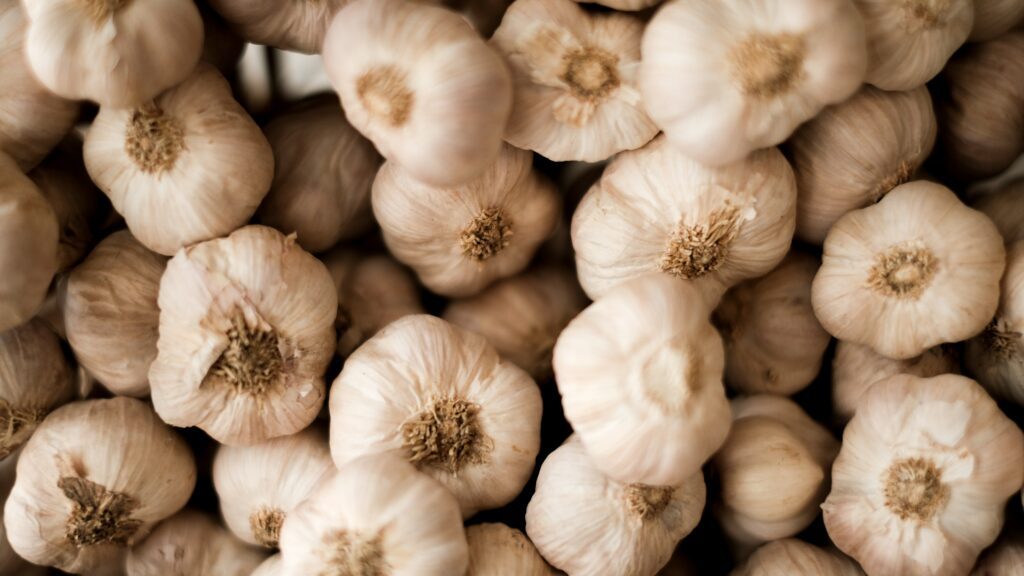A healthy diet should include garlic as a nutritious food. However, garlic can cause gastrointestinal upset in some people when consumed in excess. Before adding garlic to your diet, talk to your healthcare provider if you have a medical condition or are taking medication.
Throughout ancient and modern history, garlic (Allium sativum) has been used as a medicine to prevent and treat various diseases and conditions. It is widely used in the kitchen, but it has also had a long medicinal history.
Garlic is closely related to the onion family: rakkyo (an onion found in Asia), scallions, scallions, leeks, and shallots. In Ancient Egypt, it was used for culinary, health, and therapeutic purposes. Humans have used it for thousands of years.
Let’s review garlic facts and some of its potential health benefits here.
All about garlic

- Since ancient times, garlic has been used for medicinal purposes in many countries.
- Both raw and cooked garlic has benefits.
- Antibiotic properties are present in it.
The medicinal properties of garlic are numerous.
The use of garlic has been around for thousands of years. For 5,000 years, garlic was used in the construction of the pyramids of Giza.
The father of Western medicine, Hippocrates, prescribed garlic for a wide range of ailments. In the time of Hippocrates, garlic was already used to treat respiratory problems, parasites, poor digestion, and fatigue.
With its “performance-enhancing” agents used in sports, garlic was given to Olympic athletes in ancient Greece. Garlic spread from Ancient Egypt to the advanced ancient civilization of the Indus Valley (modern Pakistan and western India). Then he traveled to China.
The people of ancient India valued the therapeutic and aphrodisiac properties of garlic. Monks, widows, adolescents, those who had taken a vow or were fasting, as well as the upper classes, avoided garlic because they despised its strong smell.
Garlic has been used throughout history to treat conditions such as bronchitis, hypertension, tuberculosis, liver disorders, dysentery, flatulence, colic, intestinal worms, rheumatism, diabetes, and fevers. Garlic was introduced to the New World by the French, Spanish, and Portuguese.
Multiple uses of garlic
Today, garlic is used to treat a variety of conditions related to the heart and blood system, including atherosclerosis (hardening of the arteries), high cholesterol, heart attack, and coronary artery disease.
There are some people who use garlic today to prevent a variety of cancers. These serious conditions include lung cancer, prostate cancer, breast cancer, stomach cancer, rectal cancer, and colon cancer. More research is needed for this use, of course.
Fresh raw garlic extracts are less anti-inflammatory after short-term heating. Those who don’t like or can’t tolerate the taste or smell of fresh garlic may have a problem.
benefits of garlic for lung cancer

According to one study, people who ate raw garlic twice a week were 44% less likely to develop lung cancer. They were asked about their diet and lifestyle, as well as how often they smoked and ate garlic.
The authors concluded that raw garlic consumption was associated with a protective association with lung cancer, suggesting that garlic may serve as a chemopreventive agent.
brain cancer
Glioblastomas, a type of deadly brain tumor, can be destroyed by organosulfur compounds found in garlic.
Several pure organosulfur compounds isolated from garlic have been shown to help eradicate brain cancer cells, according to the Medical University of South Carolina.
Plant-derived compounds were known to show great potential in controlling the growth of malignant tumor cells. Further study of this therapeutic strategy in animal models of brain tumors is needed before it can be applied to human patients.
Hip arthrosis

Women whose diets were rich in allium vegetables have lower rates of osteoarthritis. Among the many allium vegetables are garlic, leeks, shallots, onions, and rakkyo.
In addition to highlighting the potential effects of diet on osteoarthritis outcomes, the studies found that compounds found in garlic could be used to develop treatments for the disease.
It can be a powerful antibiotic
According to a study, diallyl sulfide is 100 times more effective than two popular antibiotics in fighting Campylobacter bacteria. Intestinal infections are usually caused by this bacterium. The compound has the potential to reduce disease-causing bacteria in the environment and in the food supply.
protection for the heart
Heart-protective chemicals can be found in garlic.
Trisulfide is found in diallyl which, in turn, is found in garlic oil and protects the heart during heart surgery. Furthermore, they believe that diallyl trisulfide could be used as a treatment for heart failure if it is shown to be safe.
Several studies have shown that hydrogen sulfide gas protects the heart. The compound is volatile, so it can be difficult to administer as a therapy.
To bring the benefits of hydrogen sulfide to the heart, the scientists zeroed in on diallyl trisulfide, a component of garlic oil. Mice treated with diallyl sulfide suffered 61% less heart damage after a heart attack, compared to untreated mice.
The researchers found that garlic oil could protect diabetics from cardiomyopathy. Patients with diabetes are more likely to die from cardiomyopathy. An abnormally thickened, enlarged, or stiff myocardium (heart muscle) is the cause of this chronic disease.
Neither garlic oil nor corn oil was administered to diabetic laboratory rats. There was a significantly greater effect of garlic oils in protecting against heart damage in animals fed garlic oils compared to those fed corn oils.
In conclusion, garlic oil can significantly protect the heart from diabetes-induced cardiomyopathy. However, a human study is needed to confirm the results of this study.
High cholesterol and high blood pressure

The effects of garlic extract supplementation on the blood lipid profiles of patients with high cholesterol have been examined.
Twenty-three volunteers participated in a study, all with high cholesterol; thirteen of them also had high blood pressure. During the four-month study, they took garlic extract supplements and underwent regular blood and kidney lipid tests.
As a result of the four-month study, the researchers concluded that garlic supplementation significantly reduced systolic and diastolic blood pressure, improved lipid profiles, and strengthened the antioxidant potential of the blood. The level of oxidation product (MDA) in blood samples is also reduced. This indicates that oxidative reactions are reduced in the body.
Patients with hypertension who took garlic extract supplements had lower cholesterol and blood pressure levels. Because it is such a small study, it needs more research.
Prostate cancer
Eating garlic, especially allium vegetables, may decrease the risk of prostate cancer. It has been suggested that more well-designed prospective studies be conducted to confirm their findings, as there are not many relevant studies.
Effects of alcohol on the liver
Long-term excessive consumption of alcoholic beverages leads to alcohol-induced liver damage. However, it has been found that garlic could help with that.
It has been examined whether diallyl disulfide (DADS), an organosulfur compound derived from garlic, could provide protection against oxidative stress induced by ethanol. As a result of the study, the researchers concluded that DADS might protect against liver damage caused by ethanol.
Premature labor
The risk of preterm birth is increased during pregnancy when a woman has a microbial infection. They have looked at how food can affect antimicrobial infections and preterm birth.
According to the study authors, the consumption of foods that contain antimicrobial compounds and prebiotics may reduce the risk of spontaneous DPT. The risk of spontaneous DPT was lower in people who ate garlic, in particular.
Garlic and the common cold

Regular use of garlic for preventative purposes may reduce the frequency of colds in adults, but does not affect the duration of symptoms.
Other studies have found benefits from eating raw and cooked allium, although some studies suggest that raw garlic has the most benefits. Therefore, garlic can be enjoyed in a variety of ways to reap its full benefits.
In summary
Garlic is a popular ingredient in cooking and has been used in traditional medicine for centuries due to its potential health benefits. Some of the conclusions based on scientific research on the health benefits of garlic include:
- Potential to reduce the risk of cardiovascular disease: Garlic has been shown to help lower blood pressure, cholesterol levels, and triglyceride levels in the blood, which may reduce the risk of heart disease.
- Possible ability to improve immune function: Some studies suggest that garlic may increase the activity of certain cells of the immune system and reduce inflammation, which could help improve immune function.
- Potential to reduce the risk of some types of cancer: Some studies have suggested that garlic may have anti-cancer properties and may reduce the risk of certain types of cancer, such as stomach cancer and colon cancer.
- Potential antimicrobial effect: Garlic has been shown to have antimicrobial properties, which means it can help prevent and treat infections caused by bacteria, fungi, and viruses.
Overall, although the health benefits of garlic are not fully established, there is some scientific evidence to suggest that regular garlic consumption may have positive effects on cardiovascular health, immune health, and cancer prevention. However, it is important to remember that garlic is not a substitute for a healthy and balanced lifestyle, and individual medical recommendations should always be followed.
Read about other healthy foods and general health here:


